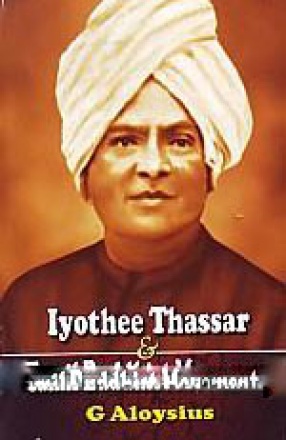The Brahminical Inscribed in Body-Politic: A Historico-Sociological Investigation of Effective & Enduring Power in Contemporary India
Price: $10.80 $12.00
Author
Edition
1st ed.
Publisher
ISBN
9788189524548
Length
56p., 22cm.
Subjects
The crucial point in this explanation, for the purpose on hand is this: that what came to be viewed and valorized as nationalism (that is, anti-colonialism) here, arose at the very juncture of the Imperialists attempts at larger inclusion (for whatever reason) in response to the demand; of the hitherto excluded/subalternised masses.Unless this root force in all its complex dimensions, is researched, recognized, related, resisted and finally resolved, the ...
